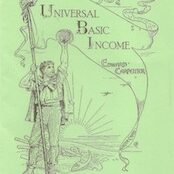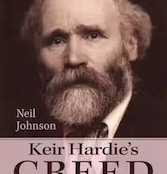When BARRY WINTER went to Belfast to meet the movers and shakers of the new politics, it was the working class unionists who made the strongest impression.
Traditionally, the left has shown great sympathy for the nationalist/Catholic, working-class population of Northern Ireland, and with good reason. Their history of poverty, poor housing, unemployment and discrimination, from the founding of the Northern Ireland statelet in 1922 onwards, is well documented and, now, widely recognised. A knowledge of the brutal colonising of Ireland (albeit tinged with a certain pro-Irish romanticism) often reinforced these attachments. For some, an Irish family history also stirred the emotional embers.
Sympathy for the oppressed and belief in a united Ireland as the best outcome for the conflict, engendered among many socialists a deeply-held political attachment to the nationalist cause, even though many did not support the violence of the modern IRA.
On the other hand, when it came to the unionist/Protestant working class, the left was far more ambivalent. The attachment of the unionist working class to intransigent Unionist parties, to the ‘archaic’ Orange Order, to parades celebrating the historical defeats of ‘Catholicism’, plus their intermittent, sectarian violence against Catholics and, indeed, their patriotism, all combined to show what a sorry bunch of political dupes they were. The cure: a united Ireland where their political vices could be transformed into class politics.
Or something like that. The statistical fact that the Protestant working class formed the majority in the North was either lost sight of or dismissed as a result the border having being rigged in the 1920s (which it certainly was). In the United States, I even met supporters of a united Ireland who were unaware of the existence of the unionist population. For them, it was simply a matter of getting the Brits out.
Those of us on the left, like the ILP, who moved from support for a united Ireland to recognise that it was not that simple, were often summarily dismissed as ‘unionists’. Yet we were trying to tackle a genuine problem: two impoverished communities, with different identities, seeking very different political outcomes. Maybe the communal divisions within the working class had to be tackled before the political division of the border could be resolved.
Of course, events have not waited upon the deliberations of the left. We have seen significant political shifts from many representatives of the two communities in the North, and pro-active politics from Westminster and Dublin, in sharp contrast to decades of neglect.
Courted and patronised
My visit to Belfast (and Dublin) with fellow staff and politics students in March this year came shortly after the Good Friday Agreement had seriously faltered over the decommissioning of the IRA’s arsenal. We met an array of politicians in Stormont and at Belfast City Hall, as well as political activists in west Belfast and on the Shankhill. At Stormont, we were gently courted by Sinn Fein, mildly patronised by one of the leaders of the SDLP, offered an upbeat welcome by the Women’s Coalition, and lectured to by the Progressive Unionists (PUP).
We received further Sinn Fein hospitality at the famous Conway Mill, now transformed into a multi-functional community centre which, we were told, is ‘open to all’. The practical limits of that commitment was a 100 yards away: the huge corrugated metal, ‘peace wall’ that separates the communities. Later, just on the opposite side of the wall, we were given a guided tour of their patch by local Progressive Unionists.
Of all the arguments and experiences (and I cannot do justice to them all here), it was the Progressive Unionists who left the most lasting impression on me. With only three members in the Northern Ireland Assembly, they are not a major electoral force. But on the ground in the Shankhill, with their links to the paramilitaries, they are significant. What struck me most was the formidable, no-nonsense way in which they expressed their politics.
These were tough, working-class men (we met only men) telling their version of how it is. Their disdain for unionist politicians like Ian Paisley, who stir up sectarian divisions but are not around when the going gets rough, was palpable.
In Stormont David Irvine, PUP assembly member, argued that politics is primarily about morality. Unionist politics is a statement about being a citizen of the United Kingdom. In the past, he said, unionist politicians have never had to come to terms with nationalist politics but now we are moving into uncharted waters. There had been discrimination against the Catholic population, he said, something that other unionists are still in denial about. When he was 14, he saw the emergence of a civil rights movement but, as unionists, “we didn’t listen”, he said. “We did not think what it was like to be a young Catholic with a sense of hurt and grievance.”
But he added that there is another dimension that has to be added to the picture – the role of political élites and their relationship to the working class.
Sense of belonging
He argued that working class Protestants have had precious little more than their Catholic counterparts. What they had, he said, was a sense of belonging, that they were needed by the ruling unionist élite as its standing army. Sectarianism was nurtured by them. “We were fed ghosts and shibboleths,” he said, even though most Protestants had only slightly better material circumstances than the Catholics.
Industry was controlled by Protestant industrial élites and “there was nothing wonderful about our incomes and jobs”. Redundancy payments from the shipmakers, Harland and Wolf, of £15,000 for a lifetime’s work reflected this.
His party believes in integrated education. He pointed out that the 11+ still operates in the North and the average pass rate is 27 per cent. For working class Catholics, the pass rate is 12 per cent and for working class Protestants it is only 3 per cent. What they are seeing is the development of what he called an underclass of unemployed, disaffected young men, without confidence.
Irvine expressed scepticism about the real importance of decommissioning. He argued that the peace process involves carefully worked-out and often fragile stages, not instant changes. Dialogue is the key. Without dialogue there can be no peace process.
Alongside the forceful rhetoric of Irvine, came the more quietly spoken, almost chilling, remarks of Billy Hutchinson. He argued that the peace process involved two different sets of negotiations – the wider political process and the one between Sinn Fein and the Progressive Unionists. Each process needs to be allowed to develop, something which in the past has not been permitted.
If you ask any soldier in the trenches what he most wants it would be to go home, said Hutchinson. That is why “in Northern Ireland, the soldiers have to make the peace”. He acknowledged that in the past, the working class has provided “the cannon fodder for the conflicts”. “It is their brains that are spilled out on the pavements when the violence starts,” he said. If the war is to end, we have to stop inventing more victims, but violence makes more victims.
While unionist politicians sent their children to public schools in England, the children of working class unionists and nationalists were suffering violence on the streets, he argued.
History
The Progressive Unionists have studied and learned from their own, and the IRA’s, history. The only universities that working class people had were in Long Kesh. Prison, a “hothouse of discussion and debate”, he said, adding, “we don’t want another generation going through that experience”.
“Not only did we inflict pain on others but we brutalised ourselves,” he said.
Hutchinson warned that there is disillusionment in the communities about the peace process. People are saying that politics does not work and this leaves a void which some seek to exploit by acts of violence. If this happens then the IRA and the Ulster Volunteer Force could be drawn into further conflict.
He concluded by saying: “If we can’t change the mind sets of 18 year-olds on both sides, there is no future. The career politicians don’t connect with them. Instead we have to persuade the young that politics works.” If they do not change the minds of the young people in their communities who are prepared to kill – as he and his generation was – there can be no progress, he warned.
This dour but forceful account was reiterated, perhaps more crudely, at street level by PUP activists. Something of the complex meaning of working class unionist identity became apparent when we visited the garden of remembrance for those who died in the two world wars – and for those who have subsequently died defending the union.
At the Glasgow Rangers Supporters’ Club, the PUP youth officer told us that, for him, unionism means loyalty to Queen and country. He added that the PUP was a socialist party, believing in a decent health service for everyone and a good education for all young people.
As working class unionists, he said, they are proud of their history and the way that they have fought for Britain. In the first world war, the Ulster Regiment was an élite brigade of the British army. The Drumcree march is to commemorate those who died in the Battle of the Somme, he claimed.
Ambivalence
His remarks brought home to me how this collective memory of the world wars is stronger in the North than in the rest of the UK, and important for understanding the working class unionist version of being British. As such, it encapsulates something of the ambivalence of working class unionism: a pride in one’s country and the efforts of those who have defended it, coupled with a critique of the ruling classes who sent young men to their deaths.
The PUP reflects the crisis and contradictions within modern unionism as it tries to adjust to changing circumstances. We may not like all of their messages but they are deadly serious and they display an impressive honesty. Far more than many career-oriented politicians they speak for their constituency; they recognise and live daily with the reality on the streets.
They also recognise the importance of politics – not for carving out political careers – but for making a difference to young people’s lives. It will be a loss if, in ‘normalising’ politics in the North, growing distance develops between the people and those who represent them.
The Progressive Unionists want peace and social justice but, my impression is, they will also defend their communities and their identities. After all, as one of them said, they have nowhere else to go.



22 October 2010
[…] of peace Paul Dixon wonders how the Republican leaders have sold the Good Friday Agreement. For Queen and country … and socialism Barry Winter meets the working class unionists who tell it like it is. Zimbabwe in crisis William […]